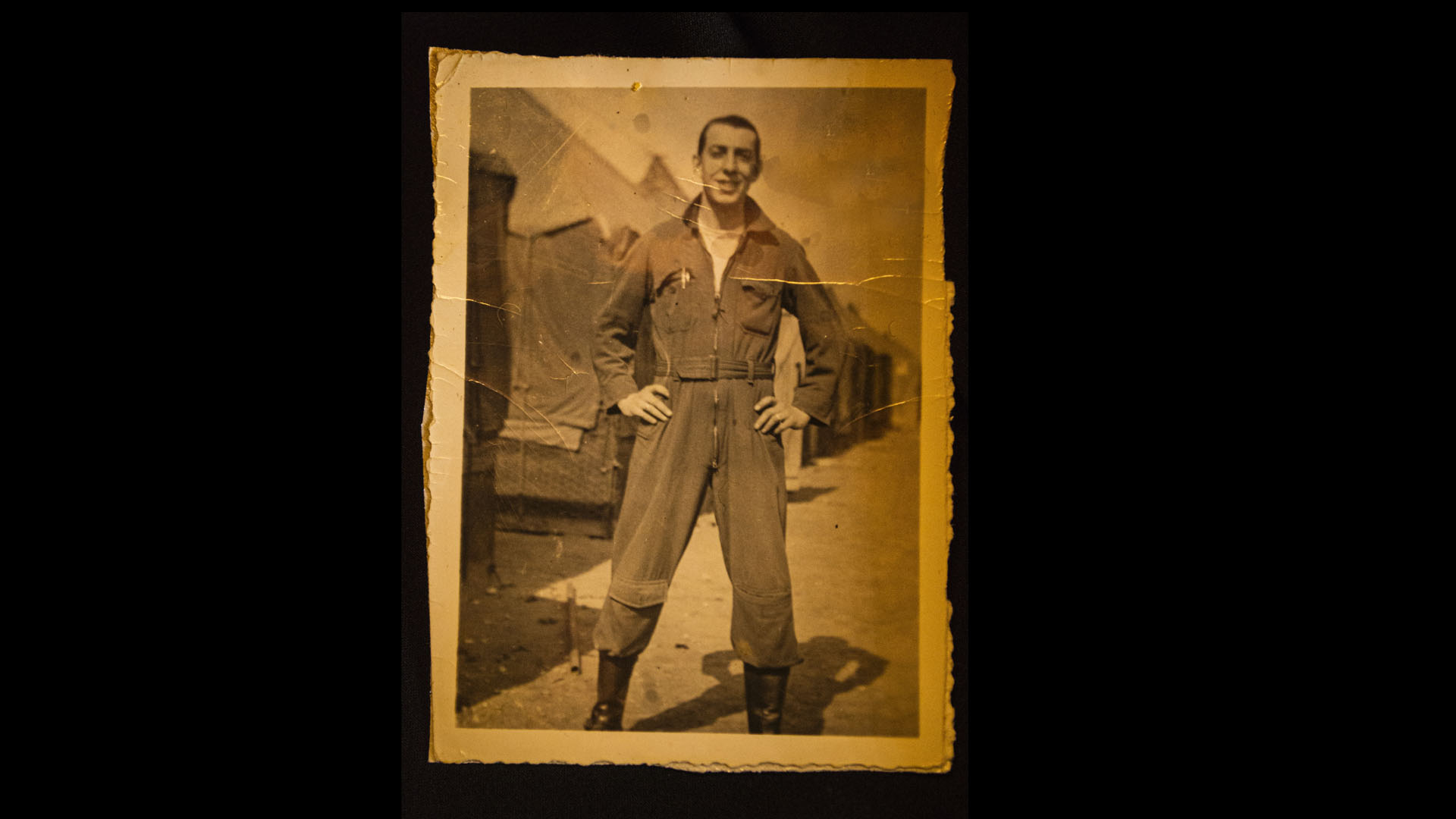In 1947 Gustave Gold was among the thousands of GIs who had come back from the war in Europe eager to make a new life and leave the old neighborhood behind. They were all mostly regular guys from the boroughs who had given up a couple of years of their lives to stand up to Hitler and the Japanese. They’d left behind their wives, girlfriends, mothers and fathers in bus depots and train stations all across America, leaving whole families behind with nothing but tears and handkerchiefs, standing dumbfounded and waving blindly at the disappearing smoke of traffic or train lines.
It hadn’t taken long in the brutally hot desert of North Africa before these brave soldiers were reduced to clinging to their fading Technicolor memories of their home towns, reading their wrinkled love letters over and over in lonesome bunks or tacking up photos of family and girlfriends to help get them through the long, hot, solitary nights spent so far from home.
Meanwhile, back in St. Albans, New York, Miriam Kinsky Gold waited patiently in the gloomy house she had grown up in for her husband to return. But it would be three miserable years before the war was over and Gustave ‘Bubs’ Gold would finally come home to rescue her from her father’s taunts and abuse. Now they were together again and like many other GIs, Bubs was eager to stake out his claim to one of the new suburban frontiers being built on Long Island.
Three months to the day that Bubs had come back from overseas, he borrowed his father’s Desoto, grabbed his wife from their tiny apartment in Richmond Hill and drove out to the newly built neighborhood in the town of Floral Park.
Long Island was a long way from the foxholes of Bataan or the desert of North Africa, but just as foreign to the sons and daughters of immigrants who’d grown up playing stoopball and kick-the-can between groaning brownstones, while their mothers and grandmothers cooked up great pots of strange food that steamed up their kitchens and filled the neighborhood with the pungent and familiar aromas of the old country. This new landscape, built on the same slip of earth where once only farmers or the very rich lived, was a clean, safe world. Each week hundreds of new houses in dozens of new neighborhoods were being made ready for these modern day pioneers. New developments were sprouting up in what seemed like days, the smell of wood and paint still lingering in the air long after the last nail had been hammered into the wooden frames and the last shingle put down on the finished roofs.
After a brief tour of little cape cod and a conversation that ended with a handshake and a small cash deposit, Bubs took out the Zeis Icon camera that he’d won in a poker game in Tunis, opened the leather case and cocked the shiny lever attached to the lens.
“I want a picture,” he’d said, handing the camera to his pregnant wife, “Just aim and press this button,”
Miriam carefully knelt down and placed her pocketbook on the just dried cement walk. Then she ran back twenty steps.
“Too far!” he motioned her back with his hands.
Miriam took ten steps in, her excitement quickly replaced by nervousness.
Bubs stood proudly on the front step of the brand-new unfinished house, his hands on his hips, his bony elbows jutting out; a bashful smile on his face. He was still wearing his army jacket, all hope and readiness with his VA loan safely stuffed into his side pocket and a fistful of cash in his hand.
“How’s this?”
“Perfect,” he beamed, while she steadied herself. She took the picture.
 Professor Dean Goldberg is the Director of the Communication, Art and Digital Media program at Mount Saint Mary College, a private liberal arts college in upstate New York. He spent more than half of his adult life as a film editor, writer and director for film and television and has written articles and reviews on film production and film theory. His article ‘More Than a Touch of Madness’ on Donald Cammell and Nicolas Roeg’s film Performance (1970) appeared in issue 15.3 of Film International. His review of ‘Show Trial’ appeared in issue 16.4. He also is a contributor to FilmINT online.
Professor Dean Goldberg is the Director of the Communication, Art and Digital Media program at Mount Saint Mary College, a private liberal arts college in upstate New York. He spent more than half of his adult life as a film editor, writer and director for film and television and has written articles and reviews on film production and film theory. His article ‘More Than a Touch of Madness’ on Donald Cammell and Nicolas Roeg’s film Performance (1970) appeared in issue 15.3 of Film International. His review of ‘Show Trial’ appeared in issue 16.4. He also is a contributor to FilmINT online.



